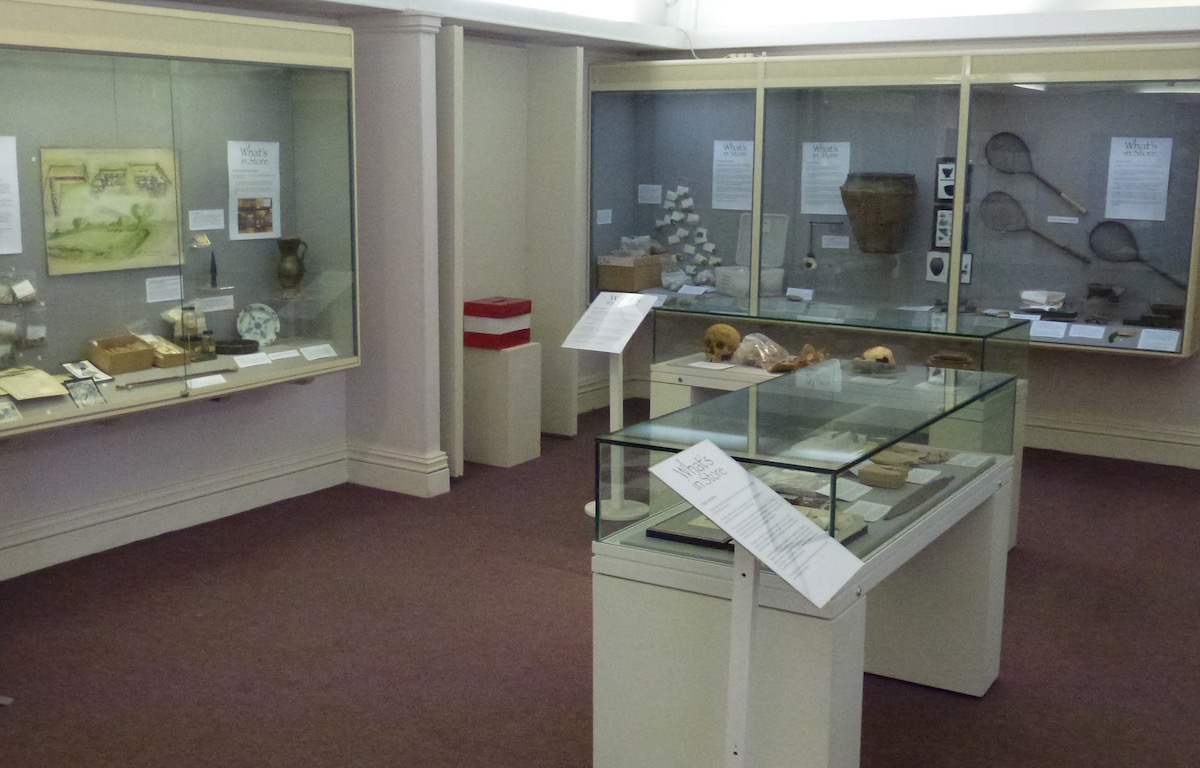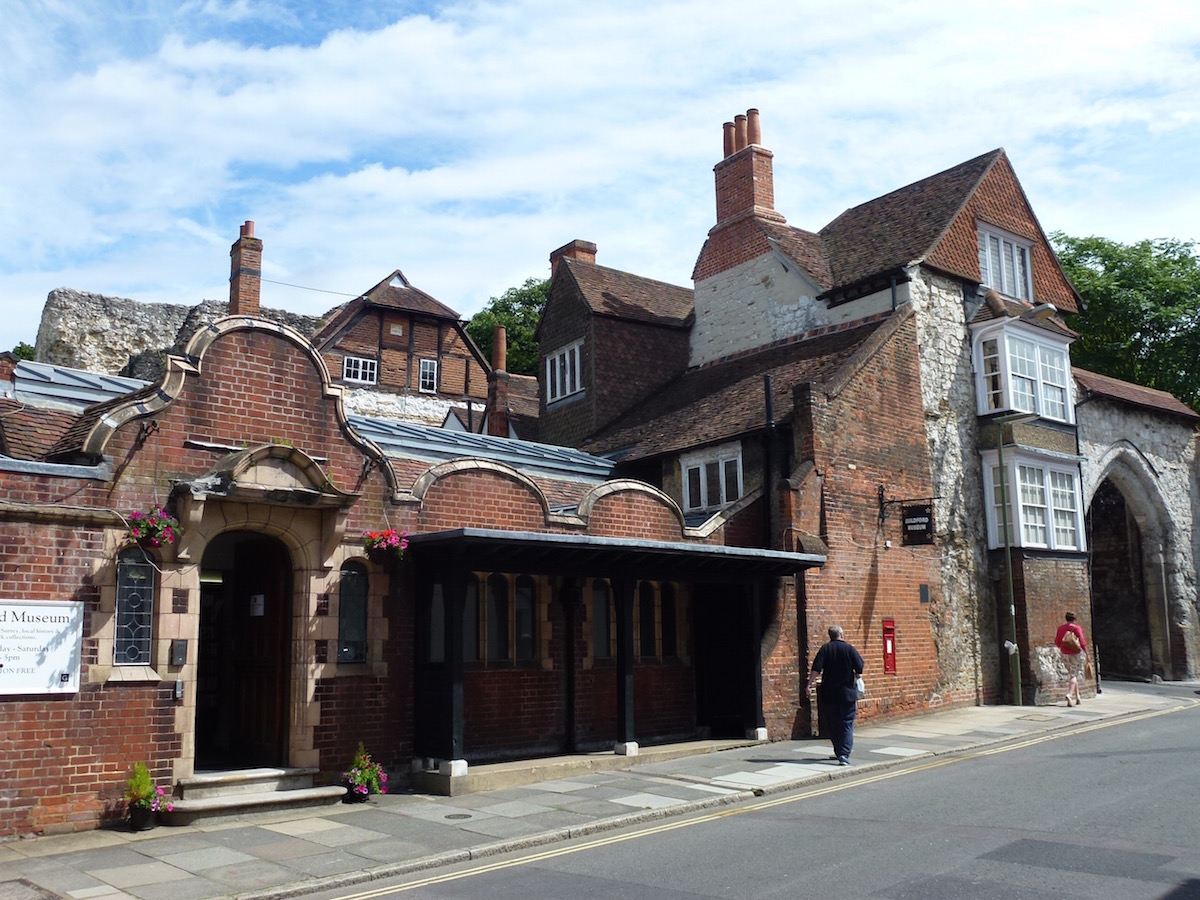 Abraham Lincoln
If given the truth, the people can be depended upon to meet any national crisis...
Abraham Lincoln
If given the truth, the people can be depended upon to meet any national crisis...
 Guildford news...
for Guildford people, brought to you by Guildford reporters - Guildford's own news service
Guildford news...
for Guildford people, brought to you by Guildford reporters - Guildford's own news service
Opinion: For the Lib Dems to Use Our Museum For Political Promotion is Wrong
Published on: 26 Jul, 2020
Updated on: 28 Jul, 2020
Founder of the Guildford Heritage Forum
I object to the council’s use of Guildford Museum to promote the political credentials of the Liberal Democrats. “Black lives matter” is obviously a vital issue we must all support, and museums can make an invaluable contribution to that by putting lives in perspective and telling our stories.
But for the Lib Dems to make out the museum has collections connected to racism and slavery when others have already shown this is untrue, then try to take credit for “innovative action” to resolve a condition that doesn’t exist is clearly wrong.
Guildford Museum is local history. Our museum staff do not need to waste time searching tens of thousands of perfectly fine objects. Instead, they should focus on telling the stories of all Guildfordians from all communities, from all perspectives. That would be a far better way to combat prejudice.
for the Lib Dems to make out the museum has collections connected to racism and slavery… is clearly wrong...
I am not political. I know many councillors and they are good people. We sometimes passionately disagree but they do a lot more for the community on and off the council than I could ever do and I want them to know I respect them for that. But this issue highlights why I wish party politics was banned from local government.
See Cllr Steel’s Lib Dem website article here.
 Instead of prioritising museum projects that would promote better understanding, the present council leaders seem to want museum staff to hide in the stores looking for items of colonial significance that don’t exist. What a waste.
Instead of prioritising museum projects that would promote better understanding, the present council leaders seem to want museum staff to hide in the stores looking for items of colonial significance that don’t exist. What a waste.
Of course, there are bound to be some objects that have a connection with the British Empire. School atlases showing the extent of the empire and commemorative items are obvious examples but that seems to be about it. Guildford Museum does not have anything like the Benin Bronzes held by the British Museum, Horniman Museum and other European museums. It is a local history museum.
If the Lib Dems had been really serious about this issue they would have done their homework. Then they would have realised there are not 1,000 objects as the councillor for Heritage claimed in his Guildford Dragon interview but “100,000 objects covering archaeology, social history, art and textiles”, as clearly stated on the GBC website.
For a more detailed understanding of the collections, they just needed to look a the collections policy available as a PDF on the council website.
If they had even just asked Matthew Alexander, the council’s own “honorary remembrancer” and curator of Guildford Museum for 30 years, they could have saved time and avoided this furore. And embarrassment. As he told The Guildford Dragon: “In 2007, the 200th anniversary of the abolition of the slave trade… museum staff, myself included, explored any local connections we might have with the slave trade, and found none.”
Museums are not deliberately sitting on dark secrets…
Dr Mary Alexander, former assistant curator of the museum, told the Dragon: “The 19th-century collections had a handful of objects, such as spears from New Zealand and Malaya, which were disposed of 100 years ago. In the 1980s, a few remaining ethnographic collections were transferred to more appropriate museums”.
Present staff could have explained that as an accredited museum, Guildford’s has a database that can be used to quickly produce a report on likely items of interest in relation to colonial history.
Museums are not deliberately sitting on dark secrets. Museum staff are among the most politically aware groups of people I have ever encountered. They are trained to look at objects from different perspectives. As a member of the Museums Association, I attended the annual conference in Brighton last October which was dominated by the topic of de-colonisation.

Approximately half of the museum’s exhibits, including the majority of the most important historically, are said to belong to the Surrey Archaeological Society.
The Museums Association’s (MA) Ethics Committee launched a working group to produce practical guidance on museums and decolonisation. This is not a Lib Dem initiative. Museums are on the case already.
If the Lib Dems had really done their homework they would be highlighting the glaringly obvious fact that Guildford Borough Council owns the Chilworth Gunpowder Mills scheduled monument. This supplied gunpowder to the British Empire throughout its history. Now there’s a story that needs interpreting from different angles.
Wouldn’t that now tranquil woodland be a great place for an art installation to symbolise that out of the horrors and greed of the past we want to build an inclusive society?
That is not saying we should point the finger of blame at long-dead locals who worked there to feed their families. Of course, there were some villains, but most workers were simply trying to survive in a factory connected in world affairs beyond their control.
History can prompt us all to reflect on how we can be innocently connected to things with which we disagree. taxjustice.net revealed: “It’s hard to believe but it was only in 2015 that, according to the Treasury, British taxpayers finished ‘paying off’ the debt which the British government incurred in order to compensate British slave owners in 1835 because of the abolition of slavery” (see: https://www.taxjustice.net/
Museums continually respond to the questions and issues of the day and have long taken an interest in all communities. When I started my career in the 1980s, I attended a conference lecture on an exhibition about South African apartheid at Neasden Museum which had a large African community.
There are two reasons why Guildford Museum might seem behind the curve…
At the Museum of London, I worked on the “Peopling of London” exhibition managed by Nick Merriman. As director of Horniman Museum, he is now leading a consultation with the Nigerian community about the future of the Benin Bronzes.
There are two reasons why Guildford Museum might seem behind the curve. First, it is a local history museum dominated by rural history and second, it has been waiting for funding to update the galleries for decades.
But there are plenty of stories that could be used to connect all communities. You don’t have to look far to find information on Surrey’s connections to slavery. There is a section on Exploring Surrey’s Past. Clandon House was built partly from money inherited from a sugar plantation owner via marriage.
There are other important stories. The museum re-opened last week with an exhibition on VE Day 1945. At that time, there were Italian prisoners of war at the Merrow Camp and before they were repatriated they were allowed to work in the town. I believe some married local girls and became part of the town. I was told that by a Romanian friend who married a Guildfordian. For her, this story gave her connection with the town and made her feel less of an outsider.
I am no expert in the prejudices some of my friends and colleagues have to put up with. I hope they will talk to me and help me understand more. These issues go way beyond the scope of local history, but museums can play their part as a force for good, giving us perspective and bringing us together. The history of our town is something we all have in common and are all part of whether we stepped off the train today or have always lived here.
Guildford Museum’s galleries have been underfunded for decades. Little has changed over the past 25 years although the council has made four commendable but unsuccessful lottery bids. We now have a chance to do something imaginative with existing resources that will help our struggling post-Covid-19 town centre and give all communities a voice.
The last thing we need to do is consign museum staff to stores for years searching for controversial objects that probably don’t exist just to promote the reputation of one political party.
Responses to Opinion: For the Lib Dems to Use Our Museum For Political Promotion is Wrong
Leave a Comment Cancel replyPlease see our comments policy. All comments are moderated and may take time to appear.
Recent Articles
- Guildford Institute’s Crowdfunding Project for Accessible Toilet in its New Community and Wellbeing Centre
- Letter: Guildford – Another Opportunity Missed?
- Letter: GBC’s Corporate Strategy – Where Is the Ambition?
- My Memories of John Mayall at a Ground-breaking Gig in Guildford Nearly Six Decades Ago
- Westborough HMO Plans ‘Losing the Heart of the Street’ Says Resident
- College Invests to Boost Surrey’s Economy and Close Digital Skills Gap
- Community Lottery Brings Big Wins for Local Charities
- GBC Housing Plan Promises ‘A Vibrant Urban Neighbourhood’ Near Town Centre
- Hospital Pillows ‘Shortage’ at the Royal Surrey
- Updated: Caravans Set Up Camp at Ash Manor School


Recent Comments
- Ian Macpherson on Updated: Main Guildford to Godalming Road Closed Until August 1
- Sara Tokunaga on GBC Housing Plan Promises ‘A Vibrant Urban Neighbourhood’ Near Town Centre
- Michael Courtnage on Daily Mail Online Reports Guildford Has Highest-paid Council Officer
- Alan Judge on GBC Housing Plan Promises ‘A Vibrant Urban Neighbourhood’ Near Town Centre
- John Perkins on GBC Housing Plan Promises ‘A Vibrant Urban Neighbourhood’ Near Town Centre
- S Collins on GBC Housing Plan Promises ‘A Vibrant Urban Neighbourhood’ Near Town Centre
Search in Site
Media Gallery
Dragon Interview: Local Artist Leaves Her Mark At One of England’s Most Historic Buildings
January 21, 2023 / No Comment / Read MoreDragon Interview: Lib Dem Planning Chair: ‘Current Policy Doesn’t Work for Local People’
January 19, 2023 / No Comment / Read MoreA3 Tunnel in Guildford ‘Necessary’ for New Homes, Says Guildford’s MP
January 10, 2023 / No Comment / Read More‘Madness’ for London Road Scheme to Go Ahead Against ‘Huge Opposition’, Says SCC Leader
January 6, 2023 / No Comment / Read MoreCouncillor’s Son Starts Campaign for More Consultation on North Street Plan
December 30, 2022 / No Comment / Read MoreCounty Council Climbs Down Over London Road Works – Further ‘Engagement’ Period Announced
December 14, 2022 / No Comment / Read MoreDragon Interview: GBC Reaction to the Government’s Expected Decision to Relax Housing Targets
December 7, 2022 / No Comment / Read MoreHow Can Our Town Centre Businesses Recover? Watch the Shop Front Debate
May 18, 2020 / No Comment / Read More











Dave Middleton
July 26, 2020 at 4:08 pm
Very well said Sir.
Jules Cranwell
July 27, 2020 at 10:17 am
It’s too bad that common sense is a quality so palpably lacking in our council leadership. This business is not a priority for residents. The crumbling infrastructure, gridlocked traffic and pollution are. They should stop looking for meaningless distractions, and address these more pressing issues.
Sue Warner
July 26, 2020 at 11:27 pm
At last the voice of common sense and reason.
Even if there were items in the museum that had racist or slavery connections, surely it would be better to have them shown as an example of what was wrong? How are future generations supposed to learn what’s not right if these things were removed?
Dennis Paul
July 27, 2020 at 6:32 pm
A very decent, sincere contribution.